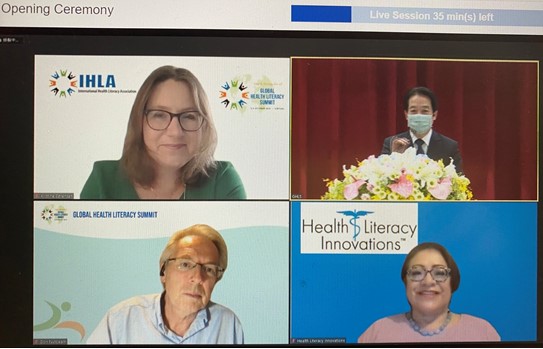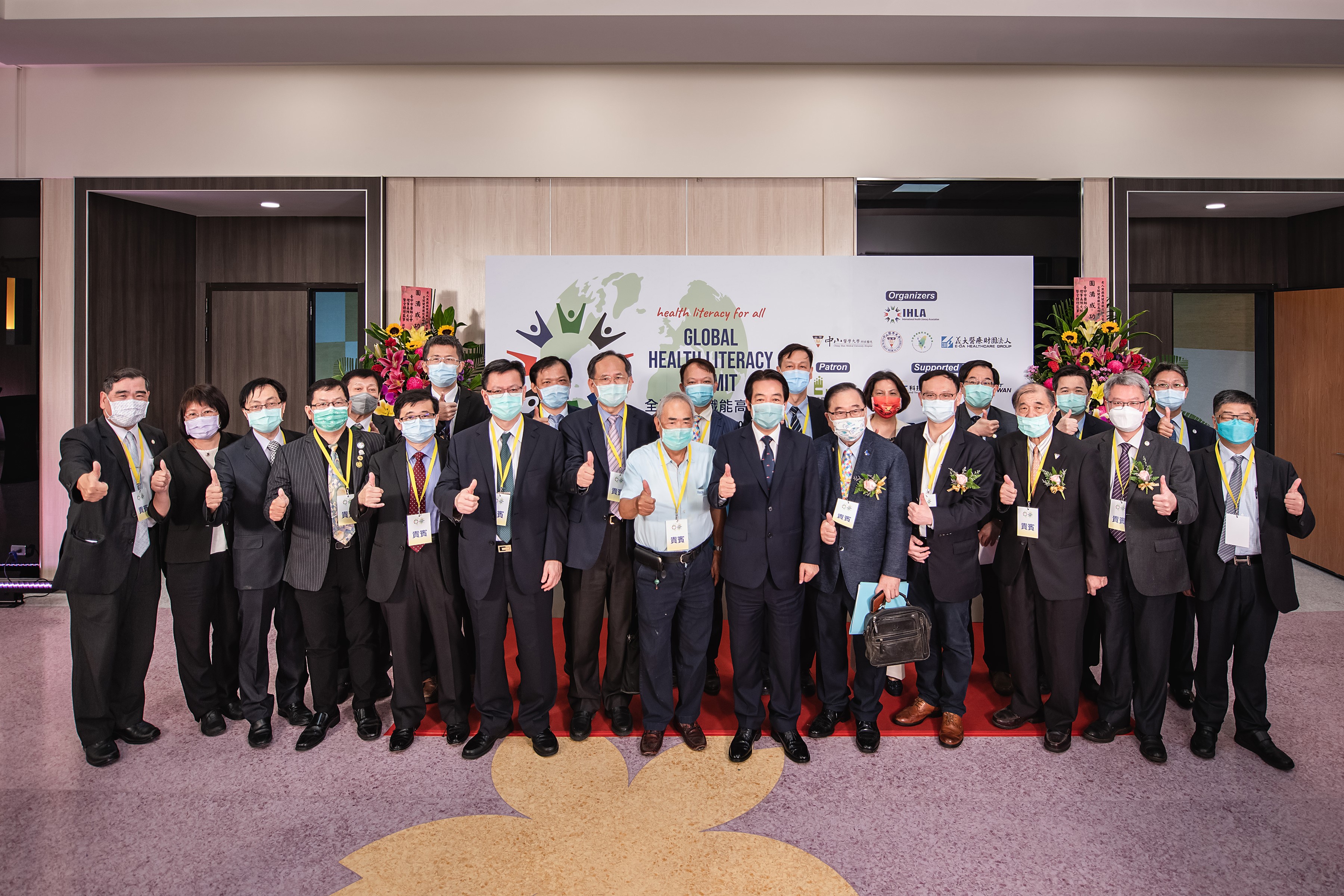In recent years, experts and scholars at home and abroad have believed that health literacy is one of the important factors influencing health outcomes and services and an effective way to improve people’s health and reduce health inequality. Thanks to Taiwan’s dazzling achievements in health promotion and medical and health in the past, with the assistance of the Ministry of Health and Welfare, Taiwan has stood out among many countries striving for hosting and became the host country of the first “Global Health Literacy Summit”. Vice President Lai hopes that Taiwan and the world can jointly promote health literacy through a cross-domain, cross-border, and cross-regional academic exchange platform.
Consolidate global consensus on health literacy and increase momentum for international policy implementation
The Global Health Literacy Summit is co-sponsored by the International Health Literacy Association, Chung Shan Medical University Hospital, and the Taiwan Association of Health Literacy and Communication. The opening ceremony and first day of the online conference were held on October 3 at the International Conference Hall in Chengai Building, Chung Shan Medical University. The conference continued from October 4 to 5 and were held simultaneously with the international online conference. Taking national health literacy as the main axis, the summit focuses on the “Global and National Policies and Health Literacy “, “Health Literacy and Health Equity”, “Health Literacy and the SDGs”, “Digital Health Literacy and Artificial Intelligence”, and “The COVID-19 and Health Literacy”. Despite the impact of the COVID-19 epidemic, the summit still attracted more than 500 experts in the field of public health from more than 50 countries and gathered high-profile scholars and policymakers at home and abroad, including representatives of the World Health Organization, the European Union, and the US Department of Health. The summit Invited international authoritative public health experts from Europe, the United States, Africa, Taiwan and other keynote speeches to gather consensus on health knowledge, and strive to promote and innovate. This is a milestone for international health development. The vision is far-reaching. Vice President Lai Ching-te stated that Taiwan, as a leader in medical and public health in the Asia-Pacific region, has listed the promotion of national health literacy as an important national policy in response to the global health promotion trend. Taiwan looks forward to learning from a global perspective to find future actions to promote health literacy and increase international visibility.
Via improper dissemination of misinformation, people see the importance of health literacy
Health literacy refers to an individual’s ability to obtain, process and understand basic health information and make health decisions based on one’s understanding. According to an European survey from 2009 to 2012, the prevalence rate of insufficient health literacy was about 29% to 62%. The 2017 National Health Interview Survey in Taiwan also found that people with high age and low education level have lower health literacy, and health literacy can affect the conscious health status. It is obvious that there is room for improvement in the ability to understand and use health information. In particular, the global pandemic of COVID-19 shows that the improper dissemination of various misinformation, public hesitation on vaccine policies, and low self-health management capabilities have made countries around the world clearly aware of the lack of public health literacy, which has not only made the epidemic challenging to control but affects the development of the medical system. Therefore, governments of various countries are willing to invest more resources to improve the health literacy education of the public and medical staff. The World Health Organization has listed health literacy as a key issue for health promotion in 2030, which shows its urgent need and importance.
Countries make health literacy action plans, leading the trend of international health cooperation
Improving health literacy and improving the health literacy environment are an important consensus in the health policies of various countries. Taiwan has established a national action plan for health awareness, which has a direction and strategy to improve people’s health literacy. In addition to the development of a health literacy action program, the establishment of a health literacy resource integration center, the establishment of a supportive environment, the promotion of talent cultivation to enhance people’s ability to provide more friendly care, Taiwan also combines health education strategies to improve personal health-consciousness, and improve the quality of health information from the side of medical service provision, thereby enhancing the health-consciousness of people. Through this summit, Taiwan’s medical achievements in promoting health literacy and prevention help lead a new trend of international health cooperation. It would be a major driving force for enhancing Taiwan’s image in promoting the development of global health policies and jumping onto the international stage to join the World Health Organization.

